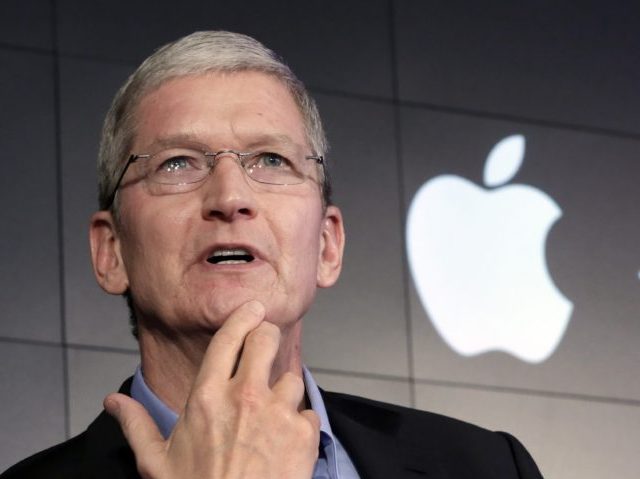The excuses have started again. Despite the atrocities in Paris, tech companies continue to stubbornly insist that they have no business helping the government catch terrorists.
Governments have upped the pressure on Silicon Valley recently, pointing to tech companies’ support for encryption as a major obstacle to their efforts to anticipate terror attacks. Encrypted devices and encrypted communications, which prevent even the owners of software or hardware from observing a user’s activities, are fast becoming the norm amongst big tech companies.
Tim Cook, the CEO of Apple, has rebuffed fresh calls to assist the authorities by installing such a “back door” to allow security services past their encryption. While Cook insisted he “appreciate[s] law enforcement’s and the national security community’s work to protect us,” he maintained that any weakening of encryption would eventually be exploited “by the bad guys.”
This argument is, of course, nonsense. It is fully within the capabilities of Silicon Valley companies to provide access to government security agencies and no-one else. It’s not that they can’t. It’s that they don’t want to. Why don’t they want to?
It’s because Silicon Valley at its heart remains a progressive paradise. Just as tech companies are obsessed with ending mansplaining and microinequities, they also seem to care little for national security. In their utopian vision of the world, tech companies cannot be directed by society or its representatives, but will instead reshape the world in their own image. Other, lesser companies may bow to the whims of government, but not Silicon Valley.
This sort of pushback against state interference in the private sphere would be admirable, if tech companies had a better way of dealing with the terrorists who use their platforms. But they don’t. In fact, they don’t even seem to care. For years, Twitter harboured thousands of ISIS accounts, making no effort to track them down. It took the vigilante hacking group Anonymous to track down and report their accounts before Twitter got serious.
DDoS-protection service CloudFlare, which prevents websites being taken offline by denial of service attacks, is even more brazen. When challenged on its track record of protecting Islamic militants’ websites from takedowns, its founder and CEO simply said it “wasn’t in their philosophy” to judge the content that they were protecting.
This kind dereliction of moral duty is typical in Silicon Valley, which believes that technology can solve all problems – even when, in the form of unbreakable encryption, it’s clearly creating them.
Silicon Valley’s resistance to government on the matter of surveillance is also strangely at odds with its attitude to government in other areas. In his crusade against “global warming,” Microsoft founder Bill Gates is now calling for what is effectively socialism. Silicon Valley is also a haven of progressivism, and tends to overwhelmingly back Democrats at the ballot box. They’ll help government regulate healthcare, energy, marriage – they just won’t help them stop you from getting blown up.
There are further double standards. Companies like Google and Facebook are built on the idea that collecting and analysing your personal data is in your best interests. Google wants to know you so well, it will remind you about your every appointment, guide you to your every destination, and answer your every question before you’ve even asked.
Facebook treats its users as guinea pigs, conducting mass experiments on their emotional responses. Somehow, these companies want us to believe that this is less creepy or dangerous than the NSA monitoring terrorists. After all, despite the paranoid visions of the Snowdens and the Assanges, that is all they’re being paid to do.
Silicon Valley’s idealism and naïveté makes for good comedy material when they obsess over diversity quotas and micro-aggressions. But on the subject of encryption, it’s dangerous – and hypocritical.
ALLUM BOKHARI RESPONDS: “Destroying Web Privacy Won’t Destroy Islamic State”
Follow Milo Yiannopoulos (@Nero) on Twitter and Facebook, or write to him at milo@breitbart.com. Android users can download Milo Alert! to be notified about new articles when they are published.

COMMENTS
Please let us know if you're having issues with commenting.